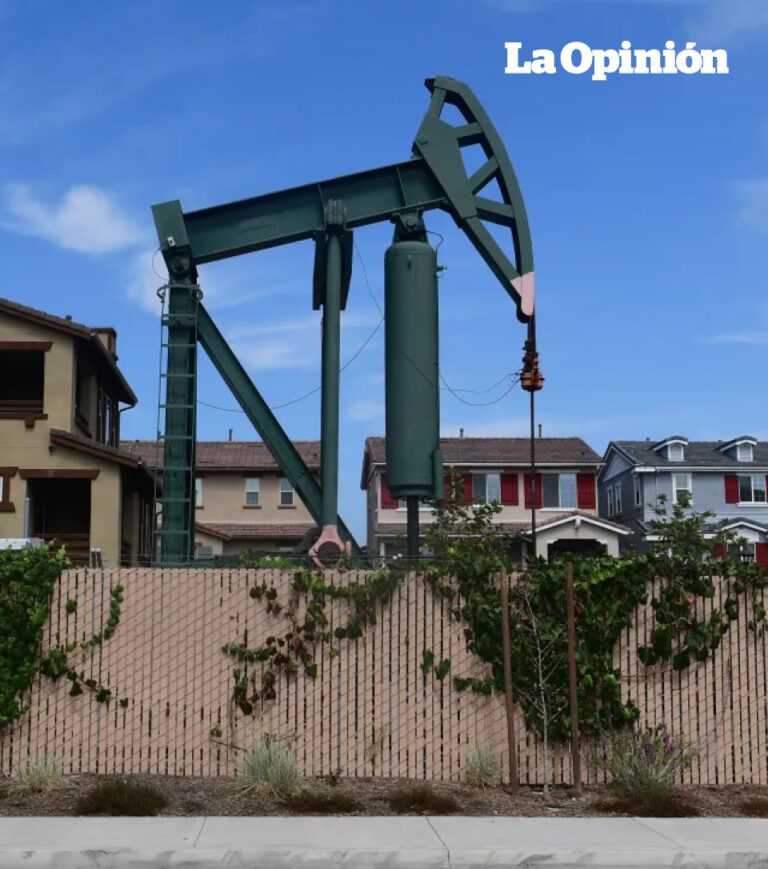The campaign “Don’t Let Them Deceive You” will create pressure on elected officials from voters residing in their districts to ultimately put an end to oil exploitation in urban areas of our state.
To the tune of the northern corrido “Don’t Let the Oil Companies Deceive You,” with Juve Quintana and his band, the launch of the environmental justice campaign “Don’t Let Them Deceive You” took place at the Plaza de Cultura y Artes in downtown Los Angeles.
“The only thing that matters to them / is stealing from us in luxury without knowing the consequences,” says the theme song. Among the organizers of the new campaign are Physicians for Social Responsibility in Los Angeles (PSR-LA); the Central California Environmental Justice Network (CCEJN); the Civic Committee of the Valley, operating in the Imperial Valley; and the LEAP Institute (Latino Equity, Advocacy, and Policy) active in Fresno County.
The campaign aims to show the real-life treatment that large oil companies give to the Latino community in California. Its scope extends beyond the Los Angeles area and encompasses the entire state, where nearly half of the Latino population lives in areas with high levels of air pollution, including eight out of ten children under the age of 10. In particular, as announced by the campaign, it aims to reveal how “Big Oil” and those who assist these corporations are indifferent to the health problems caused by local oil production to Latino families, especially children, all in their quest to increase their profit, the benefits of their directors, and the dividends of their shareholders. In this process, price increases and fluctuations are frequent, in a way that disproportionately harms poor people, who must allocate a higher percentage of their income to gasoline expenses than other sectors. And even when local oil extraction wells are finally shut down, they are ultimately abandoned by companies that bought the rights to exploit depleted reservoirs and leave the costs for environmental cleanup of these facilities – totaling millions of dollars – to be covered by the public treasury.
At the event, Sandra López presented her testimony. She lives near Freeway 5 in Los Angeles and was diagnosed with asthma five years ago, since then she had to stop working and engaging in other activities, with the consequent effect on her family’s income.
The “Don’t Let Them Deceive You” campaign will create pressure on elected officials from voters residing in their districts to ultimately put an end to oil exploitation in urban areas of our state, and for the companies that have profited so much from it to pay for its cleanup. In the interest of the future, this coalition will promote non-polluting transportation, working to establish adequate infrastructure for electric vehicle charging stations in popular areas, benefiting the Latino community.
The event was presented by members of La Mesa, a new convergence space between environmental justice advocates and ethnic media on environmental issues. “It’s time for the Latino community to confront the big oil companies and their lies,” said Martha Argüello, executive director of Physicians for Social Responsibility in Los Angeles, a founding member of La Mesa. “Our communities have borne the brunt of the environmental and health impacts of this industry for too long.”
César Aguirre, associate director of the Environmental Justice Network, added that “frontline communities of color have borne the medical bills caused by oil companies for too long.”
Rey León, who heads the LEAP Institute in Huron, a city in Fresno County, called for a solution that consists of “developing, creating, and implementing alternatives that combat the crisis and at the same time empower the community through economic, social, and environmental justice.”
Finally, Luis Olmedo from the Civic Committee of the Valley emphasized the role of electric vehicles in reducing air pollution. “Electric vehicles align with a sustainable future that prioritizes people’s health and the environment,” he said.




